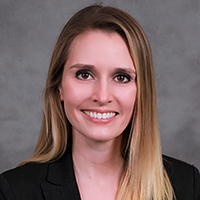Debate over EXL program continues
Since the beginning of the Fall semester 2016, the PNW Faculty Senate Committee has been planning to create an experiential learning program for both campuses. A decision is expected to be made on May 5 at the Faculty Senate Meeting.
There is currently no requirement yet for EXL, but the Faculty Senate is proposing to have only one course requirement for PNW. When the EXL program was created at PUC in 2005, the requirement was to have two EXL courses on students’ transcripts. Judy Hack, associate professor of Hospitality and Tourism Management and member of the Faculty Senate Committee, has been a part of the EXL program since its creation. She wants to keep the two-course requirement.
“The reason I feel this way is that a lot of students go to their first job interviews and are prepared. Employers like that students participate in EXL and this has helped students get jobs in the past because they become qualified for the job,” Hack said.
Dan Wilbur, chair of the Faculty Senate Committee, and Geoffrey Schultz, co-chair of the Faculty Senate Committee, said there needs to be more resources on the university’s part to make EXL a good program.
In 2005, PUC created the EXL program after receiving a $1.7 million grant from the Federal Department of Education. After the budget crisis in 2011, the grant ran out. Schultz and Wilbur said they would not be able to receive another grant.
“The problem is national standouts. A lot of resources for the old program at PUC came by the grant, and there would be no way to get that grant again. We want to do it right here and we have to follow national guidelines,” Wilbur said.
According to Schultz, the Westville campus is concerned with how valuable the program is. He believes that their concerns are right.
“Their concerns are legitimate. They want to do it right and make sure that the university is making it a qualifiable program. We want to have it, but we want to have it in high quality,” Schultz said.
Hack is concerned about English 105, which is a required course for all students and an EXL course. The general education course will fulfill the one-course requirement for EXL, and Hack believes this won’t be beneficial for majors outside of English.
“We need to define what this one course is,” Hack said. “With the two requirements, students can have English 105 and then another EXL course that is beneficial to their majors. Students can receive the other requirement through service learning, undergraduate research and study abroad.”
Hack said that she attempted to speak at the Westville campus about giving a presentation about EXL, but she was denied. She said the same thing has occurred with speaking at the Faculty Senate Meeting. Her concerns are that perhaps some of the Westville instructors may not be capable of teaching EXL courses because they do not understand EXL.
Schultz and Wilbur said that the Senate Meetings must follow a precise schedule and that they were not voicing her out, but following the schedule. Wilbur also said that the Westville instructors are able to teach EXL and that they had a similar program called Education Service Learning.
“The Westville campus has always wanted the EXL program and believe that it is valuable. [Hack] has always been under the impression that the faculty does not want it. Everyone at Westville agrees that we need EXL,” Wilbur said. “All of the instructors and professors at PNW have received the same education and have the same credentials to teach EXL. It’s just the matter of needing a more rigorous EXL program to fit PNW not PUC.”
Wilbur said that with the proposed one requirement, colleges are encouraged to add more EXL courses if they want to. However, students just need the one EXL course requirement on their transcript to graduate.
The EXL document is currently being drafted by three committees: General Education committee, Curriculum committee and Educational Policy committee. Hack believes the document for EXL should only be drafted through the General Education committee.
“A lot of people are upset about the executive part of the senate when it should be done through educational. It’s hard to speak directly to the writer of the document when there are so many writers involved,” Hack said.
Wilbur said that the university has those committees because they are working together to revise the documents and see how these documents will affect the students and education.
“We are a new university, and we are working together. We are all ready to move forward. It is not productive if we do not work together in planning EXL,” Wilbur said. “Hopefully on May 5 we will have a decision made on EXL.”


